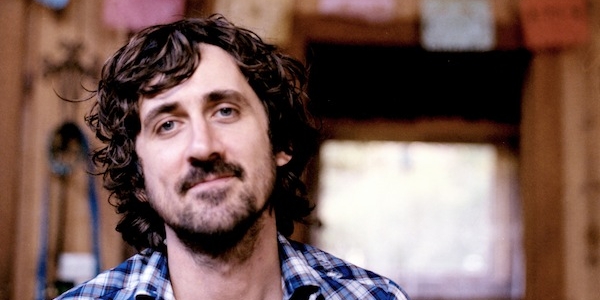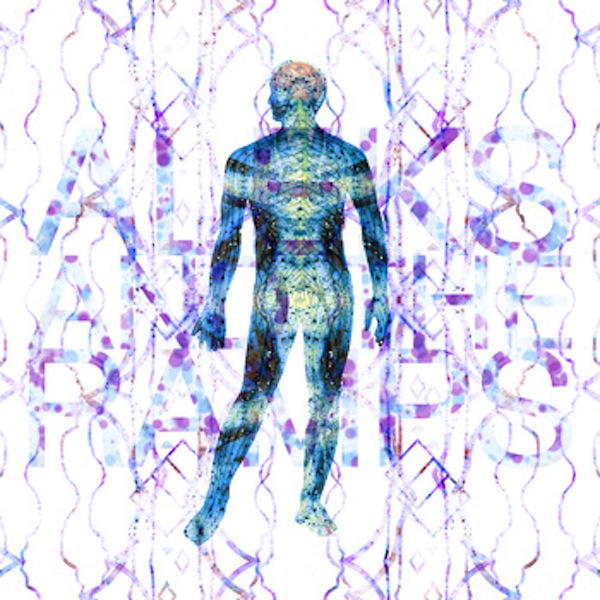When asked about his goals in music Liddiard has a clear objective. “My philosophy is I like to make beautiful music… but like anything that’s beautiful, if it’s strange, it’s more beautiful. Mountains are beautiful but a mountain in China, would be more beautiful because, if you haven’t seen it before, it’s so alien and strange,” he muses carefully, then says, “[I’m] Trying to make weird shit to bring out more beauty in stuff.”
Over summer he has been working on some new material and there is ravenous anticipation about exactly what it will sound like. At the moment he states it’s still “embryonic.” For someone who is part of rock’n’roll and a folk tradition I was curious to know where the ideas for the new material are coming from.
“I go and read the same stuff I’ve read and the things that I’ve read early on that have revved me up.” He cites Dylan Thomas; “That just blows my mind it’s like the most musical non-music text anyone’s ever written,” Flann O’Brien; “The best smart arse there ever was,” and William Butler Yeats; “I read a bit of poetry but about 70 percent of it I’m looking at it as nuts and bolts… [with] William Butler Yeats it’s not like that. I get moved by it, like listening to Stravinsky.”
It is wonderful to know that this fine song writer is moved by the greatest artists of the 20th century and that his dedication to his craft is a noble pursuit of beauty. Yeats’s poem, The Second Coming is as apocalyptic and terrifying as anything by… Gareth Liddiard, Dylan Thomas’s The Hand That Signed The Paper rages thoroughly against the machine and Stravinsky’s music can get intense; the premier of The Rites Of Spring caused a riot in Paris in 1913. Where, however, does rock’n’roll come into the writing process?
“I don’t listen to rock’n’roll I just listen to the rest of the world of music and drag everything from there into my electric guitar. Rock‘n’roll is so limited and… dull,” he spits, “compared to the rest. Stravinsky who invented rock ‘n’roll takes a massive shit all over Chuck Berry or anyone.”
I agree that the whole spectrum of music outside of rock can be challenging and rewarding; rock is limited and can’t express complex emotions purely through music like other forms but it has an attitude. Call it a “swagger” like Lil’ Wayne or a “sneer”. Rock invented that. In response to Liddiard’s comment about the “limits” and “dullness” of rock I had to counter that sometimes you can’t beat the boogie.
“Can’t beat the boogie,” he chuckles then adds, “Some days you do need a bit of boogie. You can’t get that sort of verve [with other music] like a good band like The Stooges or Black Flag or The Birthday Party because it’s so over the top: high power, high octane and just completely ridiculous. Occasionally Stravinsky is some pretty heavy shit but there isn’t this megalomaniacal power trip that a 400 watts guitar amp can give you.” It is good to know that rock‘n’roll still has a place in the musical world of Gareth Liddiard and some quota of power that rock can provide.
Though the musical setting has changed from the high octane Drones to just guitar and voice, Liddiard’s solo work still has a violent intensity. For instance in the song, The Radicalisation Of D, the verses begin as measured observations of the character, D: “A young boy busts his dad’s hills hoist, using it as a swing.” Then, as D becomes a radical, Liddiard takes a different perspective in the final verse: “You are living in a nightmare/You can’t bribe your way out of.” The singer becomes the terrorist speaking directly to his target. The contrast between a distant and close view of the character is very confronting.
With the themes of violence and the confronting nature of some his work how does Liddiard see the role of violence in his music? “It should be violent. There’s obvious exceptions, the Modern Lovers for instance. You could say a rollercoaster ride was quite violent if it was shaking you around. It’s got to be violent in an action packed way…rock’n’roll needs that action, otherwise it’s just castrated. Rock‘n’roll,” he ruminates, “it should be violent. The best stuff is.”
BY BOJAN STOJANOV







